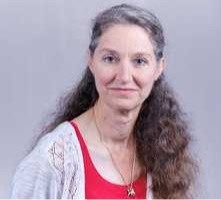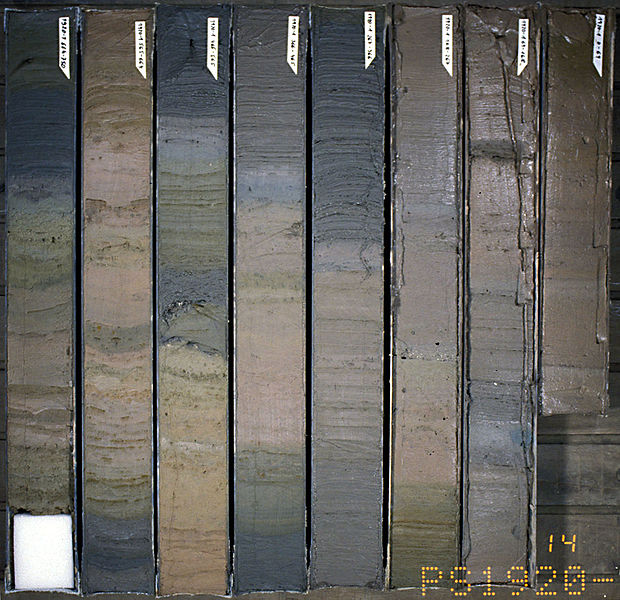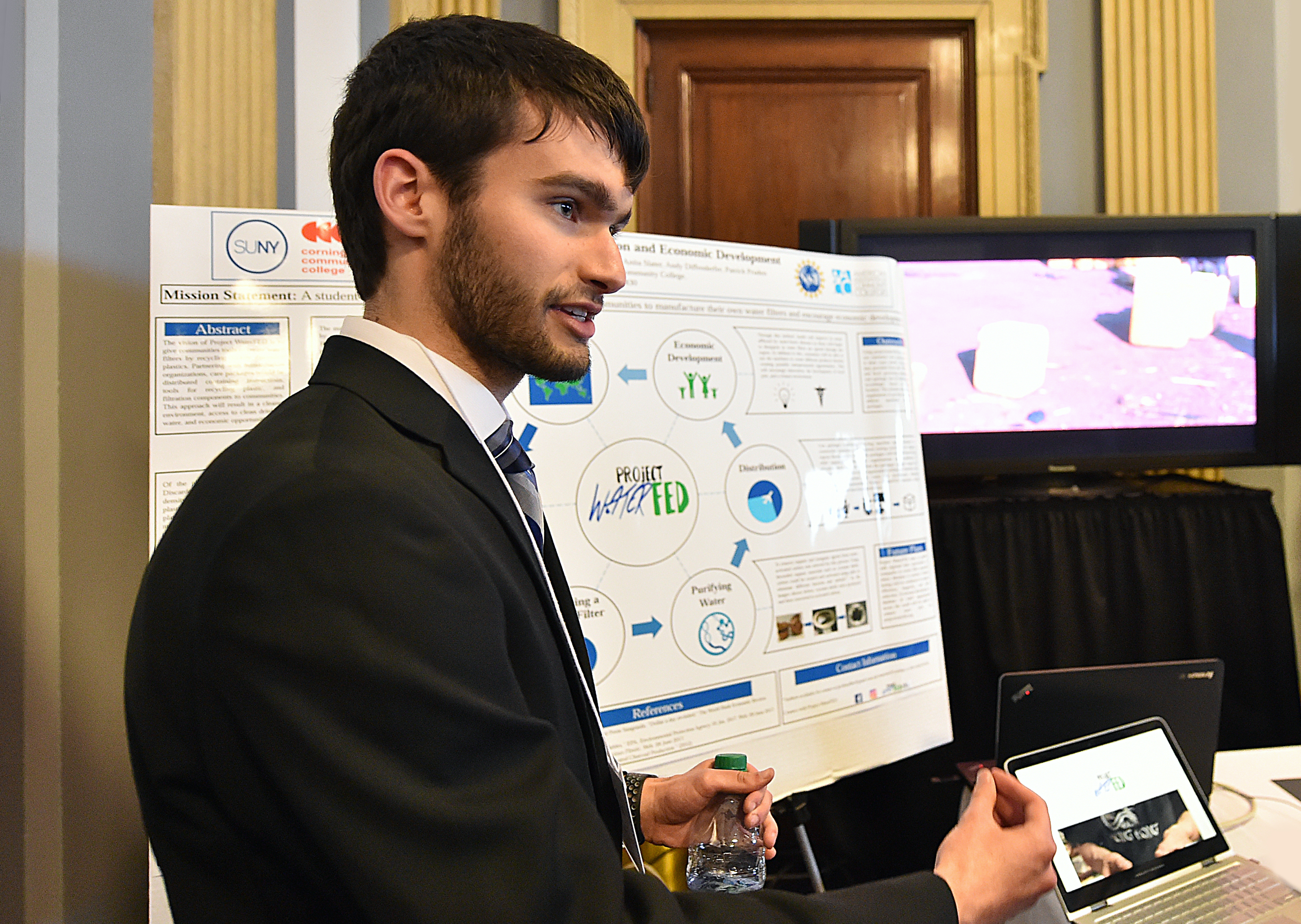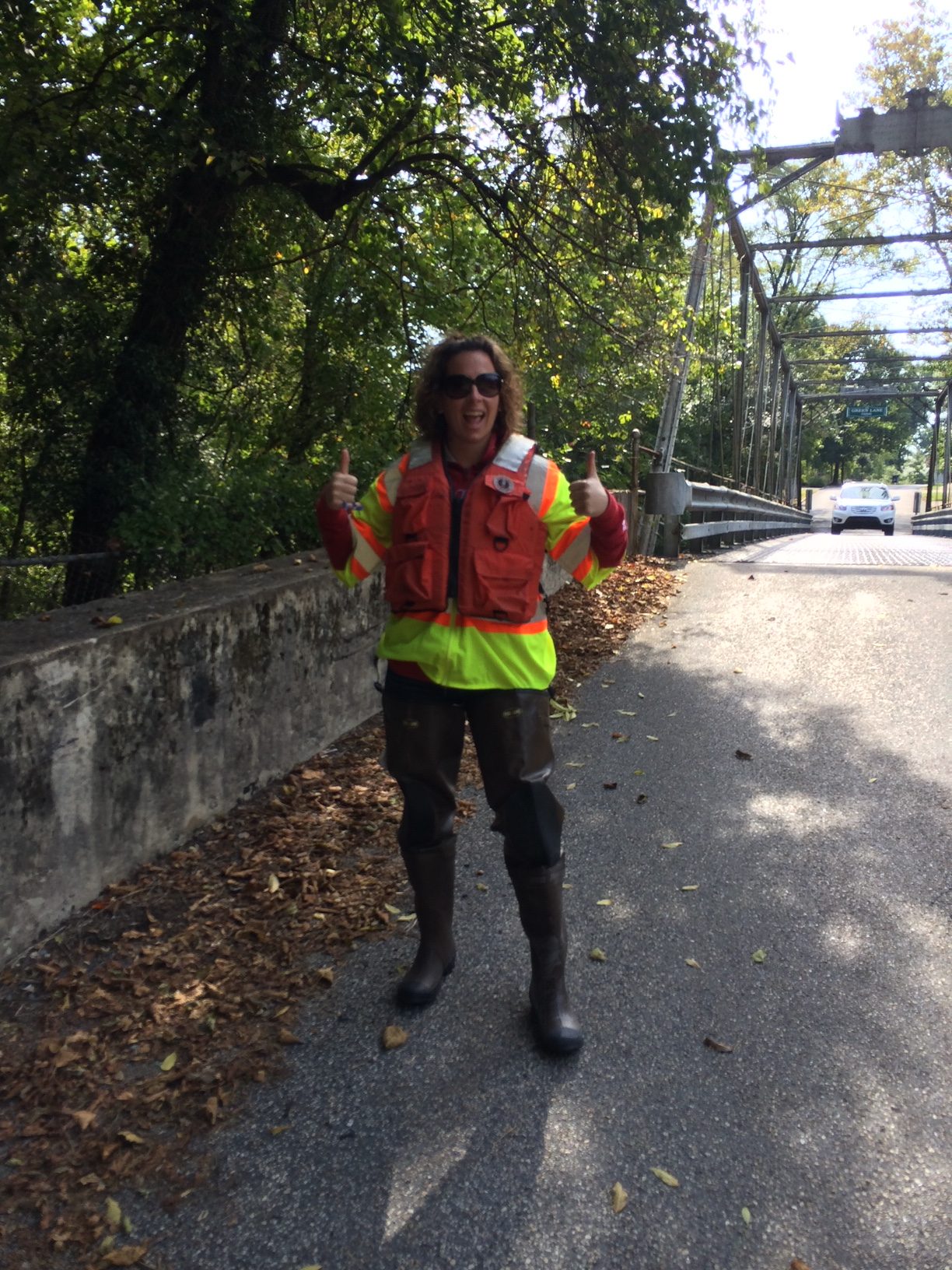May 8, 2019
“Science in Action”
Career arc: As an undergrad, Wilson studied atmospheric science at the University of North Carolina, Asheville, where she had an opportunity to participate in a research collaboration with Duke University. After graduating and getting a job at NOAA’s National Center for Environmental Information (formerly the National Climatic Data Center), she kept in touch with the Principal Investigator from the Duke collaboration and eventually joined her lab for her graduate studies. …
May 7, 2019
Ten Tips for Being a Good Partner
A true partnership is when joint decisions are the default, communication is a priority, and everyone is working for something bigger than themselves. Last month, I took a look at what it takes to be a good listener. Community science also depends on good partnership. But what exactly does it mean to be a good partner? How does a good a partner act and talk? Here are some tips I’ve …
April 30, 2019
Spring 2019 Virtual Poster Showcase: Announcing the Winners!
The 2019 Spring Virtual Poster Showcase brought students from high school to graduate school, and from near and far! We had excellent presenters from countries around the world showcasing their hard work and contribution to the fields of earth and space science. Presenters were able to learn about their peers’ research while also strengthening and/or gaining new skills such as presenting, communicating, critically-thinking, and the ability to peer-review scientific work! …
April 15, 2019
Polishing Your Profile

These days, your LinkedIn profile is your professional public face. Often, potential employers will look through your online profile to learn as much as they can about your background and interests, before they contact you. If you don’t have an excellent profile with a compelling story, they may never call you – and you may never know why. If it’s been awhile since you updated your profile, now is a …
April 1, 2019
Why Should We Care About Past Environments and Climates? Views from a Paleo-Detective.

I study Paleoceanography and Paleoclimatology – In the dictionary this field is defined as studies dealing with all aspects of understanding and reconstructing Earth’s past climate and environments – but most people have no idea what that means. How can we study something that is not there anymore, events that happened millions of years ago, and why would anyone want to know what the climate was a decade ago let …
The Secret to Being Special

Recently, I was helping out in the Resume Clinic at the annual GSA Meeting in Seattle. I saw several incredible students, but no extraordinary resumes. The resumes weren’t bad. Most used the Resume4 template from MS Word; and a few used the Resume5 template. They contained the same list of courses, the same lists of skills, and the same lists of degrees and qualifications. Only the names had been changed …
March 11, 2019
Soft Skills

Getting Hard Data on Your Soft Skills When planning your career, one of the biggest parts is your skill set. What do you have to sell to a potential employer? What kinds of things are you able to do? Do you have specific examples of times you used those skills, and had a positive outcome? In school, you learned many technical skills, including things like cartography, remote sensing, demography, data …
March 7, 2019
Putting Arctic Geopolitics to Work

When I started my academic career over 25 years ago, I would never have imagined that one day I might be working for the UK Parliament or commissioned by a UK government department such as the Ministry of Defence to conduct a specialist piece of research work. Like most of my contemporaries, I was eager to learn more about the various aspects of my new job, at the University of …
March 1, 2019
Positive Workforce Trends for Women with U.S. Doctorates in the Science, Engineering, and Health Sciences
The National Center for Science and Engineering Statistics (NCSES) within the National Science Foundation (NSF) recently published an InfoBrief comparing findings from the 1997 and 2017 Survey of Doctorate Recipients (SDR). The InfoBrief “highlights the increased prevalence of women with U.S.-earned Science, Engineering, or Health (SEH) doctorate degrees in the U.S. workforce” (Foley et al.). Some of the most interesting results from the InfoBrief are summarized below. The study found …
February 27, 2019
Communicating Science

Popular television shows such as The Big Bang Theory and Bill Nye, the Science Guy have made science a popular mainstream topic. However, science still encounters skepticism which could be due to the difficult nature of explaining science on a basic level. One of the jobs I’m tasked with as the Chief of Staff for the Water Resources Mission Area (WMA) at the U.S. Geological Survey (USGS) is figuring out …


 On the Job is an AGU blog, that provides career advice and workforce guidance to geoscience students, early-career and established professionals who are interested in pursuing professional enrichment.
On the Job is an AGU blog, that provides career advice and workforce guidance to geoscience students, early-career and established professionals who are interested in pursuing professional enrichment.